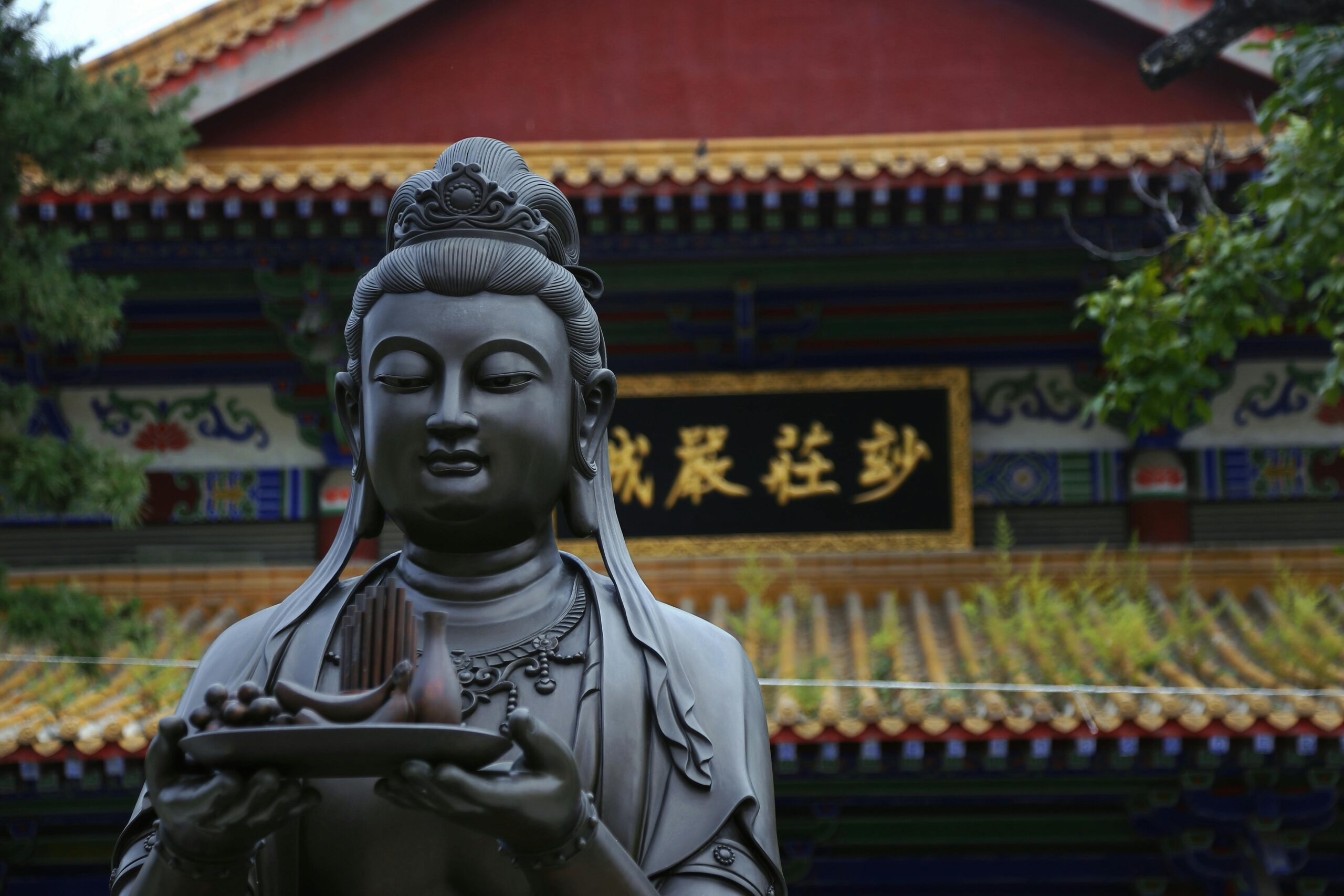Buddhism’s Teachings on Finding a Soulmate: A Journey of Love and Awareness
In a world where the concept of a soulmate often evokes images of romantic idealism and perfect compatibility, Buddhism offers a unique perspective that emphasizes inner growth, compassion, and interconnectedness. Rather than seeking a soulmate as a singular perfect partner, Buddhist teachings encourage individuals to cultivate qualities within themselves that foster healthy, loving relationships. Here, we explore key Buddhist principles related to love and connection, and how they can guide individuals on their journey to finding a soulmate.

Understanding Love in Buddhism
Buddhism distinguishes between different types of love, primarily through the concepts of “metta” (loving-kindness) and “karuna” (compassion).
“Metta” is the unconditional love that seeks the well-being of all beings without attachment or expectation. It’s about cultivating goodwill and a genuine wish for others to be happy.
“Karuna” involves compassion and empathy, recognizing the suffering of others and wishing to alleviate it.
These qualities are foundational in Buddhist teachings, suggesting that before seeking love externally, one must develop love and compassion within themselves.
The Importance of Self-Awareness
In Buddhism, self-awareness and understanding are crucial for establishing meaningful relationships. Before one can find a soulmate, it is essential to engage in self-reflection and personal growth. Here are some ways this is emphasized in Buddhist teachings:
1. Recognizing Impermanence: Buddhism teaches that all things are impermanent, including relationships. This understanding encourages individuals to appreciate the present moment with their partners and to avoid clinging to ideals of a perfect relationship. Acceptance of impermanence can help reduce attachment-related suffering.
2. Understanding Your Own Mind: The practice of mindfulness, a core aspect of Buddhism, enables individuals to observe their thoughts, feelings, and patterns of behavior. By cultivating mindfulness, one becomes more aware of personal desires and motivations, allowing for more authentic connections with others.
3. Healing from Past Relationships: Before seeking a new soulmate, it’s important to process any emotional baggage from past relationships. Buddhist teachings emphasize forgiveness and letting go of resentment, which can open one’s heart to new connections.
The Role of Compassion and Generosity
Buddhism places a strong emphasis on compassion and generosity, which are vital qualities in nurturing healthy relationships. Here’s how these principles can guide individuals in finding their soulmate:
1. Compassionate Communication: Effective communication, rooted in compassion, allows for understanding and connection. Practicing active listening and empathy can foster deeper emotional bonds with potential partners.
2. Generosity of Spirit: Generosity in relationships involves more than material gifts; it encompasses time, attention, and emotional support. Being generous with your love and kindness cultivates a nurturing environment for a relationship to flourish.
3. Creating a Supportive Environment: By fostering a loving and compassionate environment, individuals are more likely to attract similar energies in others. Positive interactions based on mutual respect and understanding create a foundation for deep connections.
The Concept of Karmic Connections
In Buddhism, the law of karma—the belief that our actions have consequences—also applies to relationships. It suggests that the energy we put into our relationships, both positive and negative, shapes our future experiences.
Karmic Relationships: These are connections that arise due to shared past experiences and actions. Recognizing a soulmate as someone with whom you share karmic ties can shift the perspective from searching for perfection to understanding the deeper significance of the relationship.
Building Positive Karma: By approaching relationships with love, kindness, and understanding, individuals can cultivate positive karma, leading to healthier, more fulfilling connections. Practicing metta and karuna in interactions can help establish meaningful bonds.

The Journey to Finding a Soulmate
Buddhism teaches that the journey toward finding a soulmate is as important as the destination. Embracing the following principles can enhance the search for a soulmate:
1. Focus on Inner Growth: Cultivating personal qualities such as patience, understanding, and compassion creates a solid foundation for healthy relationships. Engaging in practices like meditation and mindfulness helps nurture these qualities.
2. Stay Open to Connection: The search for a soulmate should be approached with openness and flexibility. Allow relationships to evolve naturally, without the pressure of expectations. The more open you are to new experiences, the more likely you are to encounter meaningful connections.
3. Practice Non-Attachment: While it’s natural to desire a soulmate, practicing non-attachment allows for a more relaxed approach to love. Letting go of rigid ideas about what a soulmate should be can help individuals appreciate the unique qualities of each connection.
4. Embrace Love as a Journey: Love is not merely about finding the right partner but is also a continuous journey of learning and growth. Each relationship, whether successful or challenging, offers valuable lessons that contribute to personal development.
Conclusion
Buddhism offers profound insights into the nature of love and relationships, emphasizing the importance of self-awareness, compassion, and personal growth in the search for a soulmate. Rather than seeking a perfect partner, individuals are encouraged to cultivate the qualities within themselves that foster meaningful connections. By understanding love as a journey rather than a destination, and by practicing the principles of metta and karuna, one can find not only a soulmate but also a deeper understanding of love and connection in all aspects of life.
